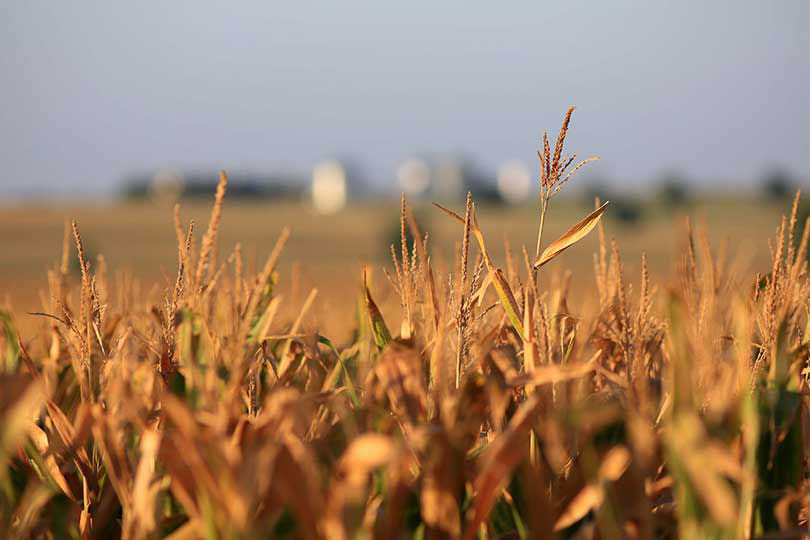An understanding of regulatory actions, legislative policies and legal issues are key to strengthening agricultural awareness and perspectives on state and national issues. Participating on the American Farm Bureau Federation’s (AFBF) Issues Advisory Committees allows Texas farmers and ranchers to provide their expertise on various agricultural topics.
Members of the Issues Advisory Committee—which consists of 13 subcommittees each focused on a specific, high-profile agricultural topic—identify issues and discuss actions and possible solutions.
The Issues Advisory Committees met Feb. 20-21 in Washington, D.C.
Each committee consists of Farm Bureau members with knowledge and direct involvement on particular issues of importance to U.S. farmers and ranchers.
Those members, who were appointed by AFBF President Zippy Duvall, include 11 leaders from Texas.
TFB Secretary-Treasurer and District 6 State Director Val Stephens is a member of the Energy Committee, which concentrates on the Renewable Fuel Standard, fracking, pipelines, carbon regulations, Corporate Average Fuel Economy standards, renewable energy sources and carbon regulations.
As a member of the Pest and Invasive Species Committee, Texas Farm Bureau (TFB) District 13 State Director Scott Frazier works on issues related to quarantines, inspections at ports, research needs for invasive species control, pesticide restriction and exemptions and control and remediation.
TFB District 3 State Director Mark Daniel serves on the Animal Care Committee, which focuses on issues of standards in animal care and health, antibiotic use, processing and the commerce clause.
Pat McDowell, TFB District 1 state director, represents Texas on the Market Structures committee. Members of this committee discuss checkoff programs, credit markets, retail production standards, commodity markets, futures and the Grain Inspection, Packers and Stockyards Act.
The Organic and Direct Marketing Committee covers organic production systems, organic checkoff programs, farmers markets, community supported agriculture and agritourism. Jessica Richmond, former TFB state director, serves on the committee.
Bob Reed, Matagorda County farmer and former TFB state director, is on the Water Committee. This committee studies the Clean Water Act, along with national and regional water storage programs, flood control and Army Corps of Engineers water-related efforts.
As a member of the Budget and Economy Committee, Smith County farmer and former TFB vice president, Mark Chamblee tackles issues like tax reforms and codes, appropriations, estate taxes, the federal budget process and the Balanced Budget Amendment.
Dewey Hukill, a Lamb County farmer and former TFB state director, represents Texas on the Technology Committee. This committee focuses on data privacy and control, unmanned aircraft systems, biotechnology, other new breeding techniques and robotics.
The Environmental Regulations Committee covers issues pertaining to the Endangered Species Act, climate change, the Clean Air Act and wildlife and farming interface. Williamson County farmer Bob Avant represents Texas on this committee.
As a member of the Food Safety Committee, Lubbock County farmer Bernie Thiel discusses certification standards, labeling, food safety education, the Food Safety Modernization Act and federal food safety programs.
Mike Helle, Hidalgo County farmer, serves on the Agricultural Labor committee, which covers guestworker programs, OSHA regulations, health care and employment taxes.
The remaining committees, which did not have TFB representatives, included Farm Policy and Federal Lands.
Outcomes of the committees’ deliberations include advice and counsel to the AFBF board of directors on policy-related actions the national organization might be advised to take, recommendations for state Farm Bureau policy development and policy recommendations to the AFBF Resolutions Committee.
“These committees serve as a resource for AFBF,” Regan Beck, TFB director of Government Affairs said. “Texas farmers and ranchers with knowledge and expertise on various topics are able to work with Farm Bureau leaders from other states to help the national organization better understand how each issue will impact agriculture.”
Committee members may also testify at congressional hearings and communicate with the media.
They will also participate in conference calls and webinars throughout the year to help Farm Bureau staff develop testimonies and write comments on proposed federal regulations.

